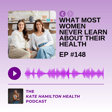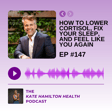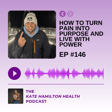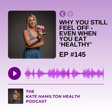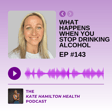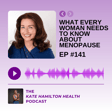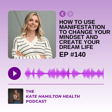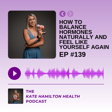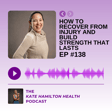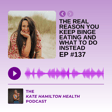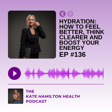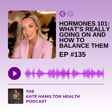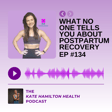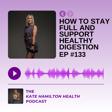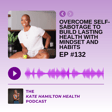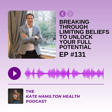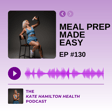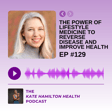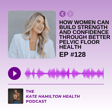
#142: Your Health Starts with How You Feel, Not What You Do
In this episode of The Kate Hamilton Health Podcast, I open up about something we often push aside in our wellness journeys - the deep need to reconnect with ourselves. If you’ve ever felt like you're ticking all the health boxes but still not feeling aligned or fulfilled, this conversation is for you.
I share the four foundational steps that helped me rebuild my emotional and physical well-being: slowing down, tuning in, practicing reflection, and replacing harsh self-judgment with real curiosity. We chat about why busyness keeps us stuck in survival mode, how ignoring our emotional signals affects our health, and what it really means to live in alignment with our values.
This episode isn't just about mindset shifts - I give you practical tools to begin your own journey of self-connection, emotional awareness, and lasting lifestyle change. If you're looking to finally feel good in your body, beyond the gym or the scale, this is where it starts.
EPISODE HIGHLIGHTS:
[0:00] - Why we’re talking about the real root of change - self-connection
[1:06] - How disconnection shows up in your habits, health, and happiness
[3:16] - The silent cost of being busy all the time
[12:20] - My 4 go-to tools for reconnecting with yourself and finding peace
[15:21] - How to tune into your emotions without judgment
[22:04] - Busting the limiting beliefs that keep you stuck
[24:45] - Curiosity vs. criticism: which one fuels real habit change?
[28:14] - Your recap and reflection questions to begin today
[30:01] - Want coaching support? Here’s how we can work together
Links & Resources:
If you enjoyed this episode, please subscribe, leave a review, and share it with friends who might benefit. For more health and fitness tips, follow me on Instagram and TikTok @katehamiltonhealth.
Music b LiQWYD Free download: hypeddit.com/link/xxtopb [http://hypeddit.com/link/xxtopb] Promoted by FreeMusicPromo [https://www.youtube.com/channel/UCbycji-eySnM3WD8mbxPUSQ] / @freemusicpromo
